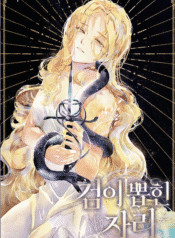Prologue: Leda and the Swan
If she were to jump into this sea now.
Leda stepped onto the rock. The dark waters were seductive. Waves crashed violently against the stone beneath her feet, rising high.
“Do you mean to throw yourself in?”
A familiar voice sneered behind her. Leda turned toward its owner.
As their gazes locked, the man drew closer. Beneath those sunken eyes, his lips curved into a cruel smile.
“Step down from the rock.”
He held out his hand.
The very hand she had once clasped with her own in Mainz. The large, warm hand she had clung to despite her shyness.
With that same hand, the man had killed her parents without hesitation—shredding her life to pieces.
Realizing the vast chasm between then and now, Leda’s heart pounded madly. Mustering every ounce of strength, she glared at the hand, her eyes bloodshot.
“I despise you.”
With those words, Leda hurled herself toward the sea. The frigid, surging waves swallowed her whole and flung her far away. The thought that it might be fine to sink like this loosened the rigid tension in her body.
In that instant, the man jumped into the sea after her.
Chapter 1. To Heaven
In the early morning, before the darkness had fully lifted, a young woman—still barely past girlhood—slipped quietly from her bed. The faint light of dawn shimmered in her blue eyes.
She opened her window just enough to look out. Waves, catching the gentle glow of morning, crashed against the shore. Beyond the castle walls, she spotted the wagon waiting in the distance. Silently, she made ready to leave.
She hurriedly pulled on a white linen dress that reached her ankles, fastening each of the small buttons with care. From her chest she drew out a pale blue ribbon, tying it snugly around her waist. Her long, thick hair fell loose to her hips, and she drew the lace strings of a white bonnet beneath her chin, knotting them neatly.
When all was ready, she slowly turned the door handle and peeked out, glancing around the hall. As she crossed the corridor and slipped out of the castle, her steps quickened with every pace.
By the time she reached the wagon standing by the roadside, she was nearly running.
“Good morning, Sinclair.”
Her whisper roused the man lying at the back of the cart. Slowly, he sat up. His long, curly brown hair was tangled with bits of straw.
“Lady Leda, you really came.”
Sinclair said, rubbing his eyes.
“You didn’t spend the night out here, did you?”
She asked, narrowing her eyes.
“I was afraid I might not keep our promise.”
“Sinclair, it’s cold at night. What if you caught a chill?”
“I’d rather fall ill than be late and have you scold me.”
He brushed the straw from his hair with a sheepish grin, then looked uneasy.
“But my lady, are you truly going? If the mistress finds out, she’ll be furious.”
Worry flickered in his eyes.
“Don’t fret, Sinclair. I’ll make sure you knew nothing of it.”
“But still…”
“You’re supposed to be running errands in Mainz, aren’t you? You’ll just say you went for that. I’ll be the one who snuck aboard.”
Leda wrinkled her nose mischievously, a dimple appearing at the corner of her mouth. Sinclair knew too well that when she wore that expression, nothing could stop her.
“Hurry, let’s go! If my mother catches us now, it’ll be over.”
With a sigh, Sinclair went to the front of the cart.
“It’ll take about four hours to reach Mainz, my lady. The roads are rough, it may be uncomfortable.”
“It’s fine. I can endure four hours. I’ve been there before.”
“That time, you rode in a carriage. This will be nothing like that. But I laid plenty of straw in the back, so please sit there, my lady.”
“Oh my, how thoughtful. Thank you, Sinclair.”
Leda climbed lightly onto the bed of straw. The dry hay carried a drowsy scent that lingered at her nose. The faint chill of early summer’s dawn was refreshing, and she drew in a deep breath.
Soon, the cart jolted forward, wheels rattling over the uneven dirt road.
***
When my mother finds the pillow dressed in my nightgown, she’ll surely faint. And my nurse—she’ll make the sign of the cross a hundred times, sighing and fretting.
Perched in the swaying cart, Leda chuckled to herself. It was her first time leaving Eledin without her parents or her brother Darius. To her, this outing was nothing short of a grand adventure.
The cart carrying Leda and Sinclair was bound for Mainz.
Mainz was the second most prosperous city in the Kingdom of Hanover, after the capital. For generations, it had been ruled by House Meyer, the oldest and wealthiest ducal family in the kingdom. The present Duke Meyer wielded such power that even the king himself dared not treat him lightly.
Mainz was blessed with fertile plains and the abundant Lindau River flowing proudly across its lands. For this reason, it was called the Land of Blessings. Its people, ever prosperous and at peace, lived for festivals all year round.
Among them, the midsummer Mainz Music Festival was the grandest of all, sponsored by the Meyer ducal house itself.
“Sinclair, did you know? The Liberen Choir is performing at today’s festival. Mother once heard them in the capital—she said it was like listening to angels sing.”
Leda chattered on like a little bird, her voice brimming with excitement.
Liberen was the name of a boys’ choir made up of prepubescent singers. Their songs were praised as the very call of cherubs descended from heaven.
But outside the royal chapel in the capital of Lien, they were seldom seen. The founding principle of the Liberen Choir was that they would sing only for the royal family and for God.
“The Meyers invited them especially. We’re truly fortunate.”
Sinclair said with an easy nod of agreement. Leda glanced back at him, her voice turning earnest.
“Sinclair, when you’re older, why don’t you study music seriously?”
“Could someone like me—a commoner—even learn music?”
“Of course. Music is equal for everyone.”
“But only nobles can enter the conservatories in the capital. People of low birth like me aren’t even allowed near the gates.”
“Yes, but Darius told me that in the Greitz Empire, commoners can enter universities too. They even accept foreigners. But women aren’t allowed—how unfair is that?”
Leda pouted faintly.
“Not that it would matter. Even if women were admitted, Mother would never allow me to go to Greitz.”
“Then I won’t go either. I like playing with you best, my lady.”
“Mm, then let’s make a promise, Sinclair. When we’re both past twenty, let’s come back to Mainz together in summer. When the festival is held, we’ll stand on stage and perform. I’ll play the piano accompaniment, and you’ll play the violin. Will you do that?”
Her voice was warm and gentle. When he turned to look back, her eyes shone with even greater warmth.
“I truly hope so, Sinclair. You’ll become the finest violinist.”
Her words fell on him like a blessing, and Sinclair’s grip on the reins tightened. The cart picked up speed as it crossed the border from Edellin into Mainz.
Leda gasped in wonder at the changing scenery. The Bern Alps, still capped with snow even in summer, rose high beneath a sky of pale blue, dotted with soft featherlike clouds. On the gentle slopes, flocks of sheep as white as the clouds grazed contentedly.
When she turned her eyes from the dazzling sun, endless fields of green wheat spread before her. Following the rolling rhythm of the green waves, Leda’s heart raced like a tide.
The warm breeze brushed against her legs, and her white dress billowed and fell in gentle swells. She loosened the ribbon beneath her chin, letting her pale golden hair stream wildly in the wind.
It was, truly, the perfect day for a festival.
***
Before noon, the wagon rattled into the central square of Mainz.
Leda leapt down at once, patting her sore hips and back after the long ride. But her face glowed, bright with expectation, untouched by fatigue.
“Thank you, Sinclair! Meet me at the clock tower at six.”
“My lady, will you really be all right? The crowds could be dangerous.”
“It’s only walking through the streets. Don’t fuss.”
Leda beamed, waving her hand lightly before darting off.
When her figure vanished into the shadow of an alley, Sinclair climbed into the wagon bed. Beneath the piled straw lay the hidden violin case—the true reason he had come to Mainz under the guise of running errands. Carefully, he lifted it into his arms.
***
The festival lasted from afternoon until late into the night. That morning, however, the streets of Mainz were still quiet. While visitors had yet to arrive, townsfolk busied themselves cleaning away the grime of the night and setting up new stages.
The sound of brooms sweeping across stone, of water splashing against windows, rang cheerfully like music. In the central square, laborers hurried about preparing the platform where the choir would perform.
Unlike Edelin’s modest and simple air, Mainz seemed like a fairy-tale town. Its rooftops, painted in bright colors, clustered neatly together like the toy villages Leda had played with in childhood.
Canals crisscrossed the city like a web, carrying clear water that rippled with gentle murmurs. Following the sound upstream, Leda walked on until she reached its source: a wide, gleaming lake—Marine.
The fresh streams that had flowed down from the Bern Alps, frozen solid until spring, now gathered here in early summer’s warmth. The water shimmered with an unreal, crystalline beauty.
Entranced, Leda stood gazing at it for a long while. Laughter from those boating across the water splintered across the waves. Children splashed in the shallows, while flocks of white swans drowsed on the shore, basking in the sun.
Truly, Mainz is heaven.






